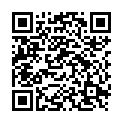|
|
|
| Module code: E514 |
|
2V+1U+1P (4 hours per week) |
|
5 |
| Semester: 5 |
| Mandatory course: yes |
Language of instruction:
German |
Assessment:
Written examination
[updated 12.03.2010]
|
E514 Electrical Engineering, Bachelor, ASPO 01.10.2005
, semester 5, mandatory course
|
60 class hours (= 45 clock hours) over a 15-week period.
The total student study time is 150 hours (equivalent to 5 ECTS credits).
There are therefore 105 hours available for class preparation and follow-up work and exam preparation.
|
Recommended prerequisites (modules):
E105 Digital Electronics
E410 Signal and Systems Theory
[updated 12.03.2010]
|
Recommended as prerequisite for:
|
Module coordinator:
Prof. Dr. Martin Buchholz |
Lecturer:
Prof. Dr. Martin Buchholz
[updated 12.03.2010]
|
Learning outcomes:
After successfully completing this module, students will be able to carry out digital processing and analysis of telecommunications signals and systems. They will understand the different structures of time-discrete systems and will be able to analyse these systems using the discrete Fourier transform (DFT) and the z-transform. Students will be in a position to develop digital, recursive and non-recursive filters to meet a specific filtering requirement. They will have learnt to analyse digital systems using Matlab and will appreciate the principal capabilities of simulations tools such as Simulink and SPW (Signal Processing Workstation). The ability to design digital algorithms and filters is developed further during the simulation and implementation of an FPGA-based application.
Students will be able to apply these skills and knowledge to understanding complex telecommunications systems and to implementing appropriate digital algorithms in their later careers or studies.
[updated 12.03.2010]
|
Module content:
1.Introduction
Ideal and real sampling, sampling theory, practical aspects of sampling
2.Time-discrete signals and systems
Discrete convolution, FIR and IIR systems
3.Structures of time-discrete systems
4.Representation of time-discrete signals and systems in the frequency domain
5.The z-transform
Stability
6.Designing recursive digital filters
7.Designing non-recursive digital filters
8.Multirate signal processing
Decimation and interpolation
9.Simulation of algorithms in digital signal processing
10.Hardware implementation
Matlab examples and exercises are provided for all areas covered.
[updated 12.03.2010]
|
Teaching methods/Media:
Lecture notes, video projector, joint Matlab problem-solving and SPW simulations in the computer lab, implementation using FPGA evaluation boards.
[updated 12.03.2010]
|
Recommended or required reading:
Oppenheim, A. V.; Schafer, R. W.: Zeitdiskrete Signalverarbeitung, Oldenbourg Verlag, 1999
Stearns, S.D.; Hush D.R.: Digitale Vararbeitung analoger Signale, Oldenbourg, 1999
Von Grünigen, D. Ch.: Digitale Signalverarbeitung, Carl-Hanser Verlag, 2004
Kammeyer, K.-D. / Kroschel K.: Digitale Signalverarbeitung – Filterung und Spektralanalyse, Teubner
Goetz, H.: Einführung in die digitale Signalverarbeitung, Teubner Verlag, 1998
Werner, M.: Digitale Signalverarbeitung mit Matlab, Intensivkurs mit 16 Versuchen, Vieweg, 2006
Brigham, E.O.: FFT Anwendungen, Oldenbourg, 1997
[updated 12.03.2010]
|


